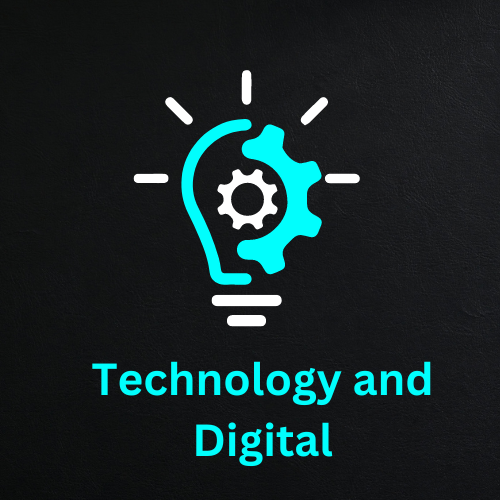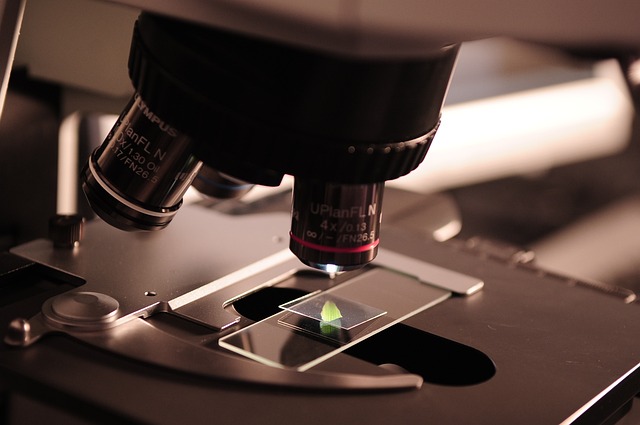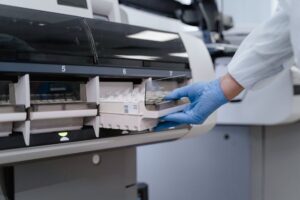
The Power of Precision: How Biotechnology is Revolutionizing Drug Development
Imagine a world where we can precisely target diseases at the molecular level, creating treatments tailored to each individual. Welcome to the realm of biotechnology, where science fiction meets reality. This article delves into the transformative power of biotechnology in drug development, exploring how it’s reshaping medicine as we know it.
What is Biotechnology?
Definition and Key Principles
Biotechnology harnesses cellular and biomolecular processes to develop technologies and products that improve our lives and the health of our planet. It merges biology with technology, creating innovative solutions in various fields, including medicine, agriculture, and environmental conservation.
Historical Background
Biotechnology isn’t entirely new. It dates back to ancient times when humans used yeast to make bread and beer. However, modern biotechnology, marked by the advent of genetic engineering in the 1970s, has accelerated the pace of innovation, particularly in drug development.
Traditional Drug Development vs. Biotechnological Approaches
Traditional Methods
Traditional drug development often involves a trial-and-error approach, screening thousands of compounds to find one that works. This process is time-consuming, costly, and has a high failure rate.
Advancements Through Biotechnology
Biotechnology revolutionizes this process by using precise, targeted methods. Genetic engineering, recombinant DNA technology, and other biotechnological techniques streamline drug development, making it faster and more efficient.
Comparison of Efficacy and Efficiency
Biotechnological approaches not only speed up the process but also improve efficacy. Drugs developed using biotechnology are often more effective and have fewer side effects, thanks to their targeted nature.
Key Biotechnological Techniques in Drug Development
Genetic Engineering
Genetic engineering involves manipulating an organism’s DNA to produce desired traits. In drug development, this means creating organisms that can produce pharmaceuticals or modifying human genes to treat diseases.
Recombinant DNA Technology
This technique involves combining DNA from different sources to create new genetic sequences. It’s fundamental in producing biopharmaceuticals like insulin, growth hormones, and monoclonal antibodies.
CRISPR and Gene Editing
CRISPR technology allows for precise editing of DNA, opening up possibilities for correcting genetic defects, treating diseases at the genetic level, and creating more effective drugs.
Role of Biotechnology in Personalized Medicine
Understanding Personalized Medicine
Personalized medicine tailors medical treatment to the individual characteristics of each patient. It considers genetic, environmental, and lifestyle factors to provide the most effective care.
How Biotechnology Enables Personalization
Biotechnology enables the development of treatments based on a patient’s genetic profile. This ensures that drugs are not only effective but also minimize adverse reactions.
Examples of Personalized Treatments
From cancer therapies that target specific genetic mutations to drugs designed based on a patient’s unique genetic makeup, personalized medicine is becoming the standard of care.
Monoclonal Antibodies in Drug Development
What are Monoclonal Antibodies?
Monoclonal antibodies are lab-created molecules that can bind to specific targets in the body, such as cancer cells. They are designed to mimic the body’s natural immune response.
Production and Application
These antibodies are produced using recombinant DNA technology. They are used to treat a variety of conditions, including cancers, autoimmune diseases, and infectious diseases.
Success Stories in Treatments
Drugs like Herceptin for breast cancer and Humira for rheumatoid arthritis showcase the success of monoclonal antibodies in providing effective treatment options.
Biopharmaceuticals: The Future of Medicine
Definition and Types
Biopharmaceuticals are medical drugs produced using biotechnology. They include proteins (such as antibodies), nucleic acids (DNA, RNA), and living cells.
Advantages Over Traditional Pharmaceuticals
Biopharmaceuticals offer greater specificity and efficacy, with fewer side effects. They are also capable of treating conditions that were previously untreatable.
Market Growth and Trends
The biopharmaceutical market is booming, driven by advancements in biotechnology and increasing demand for personalized medicine. This growth is expected to continue, with new therapies constantly emerging.
Stem Cell Therapy and Regenerative Medicine
Basics of Stem Cell Therapy
Stem cell therapy involves using stem cells to repair or replace damaged tissues and organs. These cells have the unique ability to develop into different types of cells.
Applications in Drug Development
Stem cells are used to test new drugs for safety and effectiveness, reducing the need for animal testing. They also hold promise for regenerating damaged tissues and organs.
Potential and Challenges
While stem cell therapy offers tremendous potential, it also faces challenges, including ethical concerns, regulatory hurdles, and the need for further research to ensure safety and efficacy.
Vaccines and Biotechnology
Development of Modern Vaccines
Biotechnology has revolutionized vaccine development, making it possible to create vaccines more quickly and efficiently. Techniques like recombinant DNA technology and mRNA vaccines are at the forefront.
Role of Biotechnology in Vaccine Production
Biotechnology enables the production of vaccines that are more effective and safer. The COVID-19 vaccines developed by Pfizer-BioNTech and Moderna are prime examples of this success.
Impact of Biotechnology on Vaccine Efficacy
Biotechnological advancements have improved vaccine efficacy, reducing the incidence of diseases and saving millions of lives worldwide.
CRISPR Technology: Revolutionizing Gene Editing
Introduction to CRISPR
CRISPR is a groundbreaking gene-editing technology that allows scientists to precisely alter DNA sequences. It has the potential to correct genetic defects and create more effective treatments.
Applications in Drug Development
CRISPR is used to develop new drugs by targeting specific genes involved in diseases. It also holds promise for treating genetic disorders directly.
Ethical Considerations and Future Prospects
While CRISPR offers exciting possibilities, it also raises ethical questions about gene editing in humans. As research progresses, it’s crucial to address these concerns responsibly.
AI and Machine Learning in Biotechnological Drug Development
Role of AI in Research and Development
Artificial intelligence (AI) and machine learning are transforming drug development by analyzing vast amounts of data to identify potential drug candidates quickly and accurately.
Enhancing Precision and Speed
AI accelerates the drug discovery process, improving precision and reducing costs. It helps researchers predict how drugs will interact with the body, leading to safer and more effective treatments.
Case Studies
Companies like IBM Watson and Google DeepMind are using AI to revolutionize drug development, resulting in significant breakthroughs and more efficient processes.
Challenges and Ethical Considerations
Regulatory Hurdles
Biotechnological drugs face stringent regulatory requirements to ensure safety and efficacy. Navigating these regulations can be challenging but is essential for bringing new treatments to market.
Ethical Dilemmas
The use of biotechnology raises ethical questions, particularly around genetic modification and the potential for unintended consequences. It’s crucial to address these dilemmas through ethical guidelines and public engagement.
Public Perception and Acceptance
Gaining public trust is vital for the success of biotechnological innovations. Transparent communication and education can help build confidence in these new technologies.
The Economic Impact of Biotechnology in Drug Development
Cost-Effectiveness
While the initial investment in biotechnological drug development can be high, the long-term benefits and cost savings from more effective treatments make it economically viable.
Job Creation and Industry Growth
The biotechnology sector is a major source of employment, with opportunities in research, development, manufacturing, and more. It also drives economic growth through innovation and investment.
Long-term Economic Benefits
Biotechnology contributes to a healthier population, reducing healthcare costs and increasing productivity. The development of new therapies can also generate significant revenue for companies and economies.
Environmental Impact of Biotechnological Drug Development
Sustainable Practices
Biotechnology promotes sustainable practices in drug development, reducing the environmental footprint of pharmaceutical production.
Reduction of Waste and Pollution
Biotechnological processes are often more efficient, producing less waste and pollution compared to traditional methods.
Future Environmental Benefits
As biotechnology continues to advance, it will play a crucial role in developing environmentally friendly solutions, contributing to a more sustainable future.
Future Prospects and Innovations
Emerging Trends
From AI-driven drug discovery to advanced gene therapies, the future of biotechnology in drug development is full of exciting possibilities.
Predictions for the Next Decade
Experts predict significant advancements in personalized medicine, regenerative therapies, and biopharmaceuticals, driven by continued research and technological innovation.
The Role of Continued Research and Development
Ongoing research and development are essential to unlocking the full potential of biotechnology. Investment in R&D will drive the next wave of breakthroughs and innovations.




